Address
Wellard Street, Serpentine, WA, 6125
Work Hours
Mon-Tues: Closed
Wednesday: 9am-1pm
Thur-Fri: Closed
Sat-Sun: 10am-3pm
Public Holidays: 10am-3pm
Note: Closed on Good Friday and Christmas Day
Address
Wellard Street, Serpentine, WA, 6125
Work Hours
Mon-Tues: Closed
Wednesday: 9am-1pm
Thur-Fri: Closed
Sat-Sun: 10am-3pm
Public Holidays: 10am-3pm
Note: Closed on Good Friday and Christmas Day
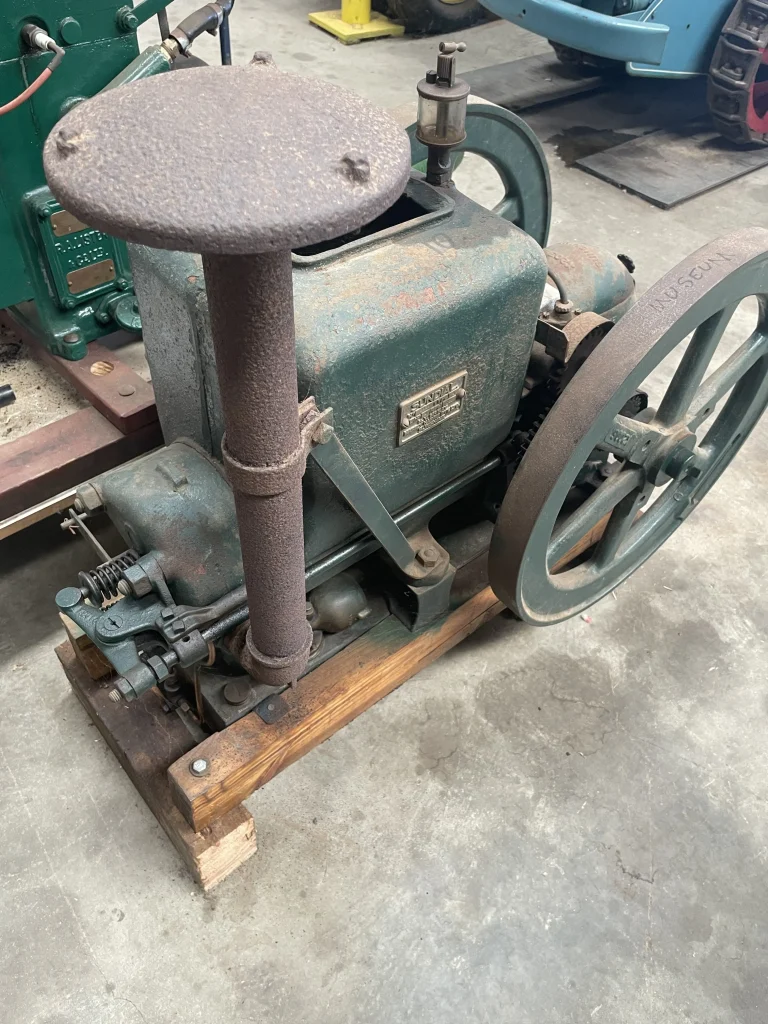
The SUNDIAL family of engines were manufactured in Australia by Sunshine Harvester Works in Sunshine, Victoria. They were made from 1926 to 1949 for use on farms to operate everything from dairy apparatus to generators and pumps. They came in…
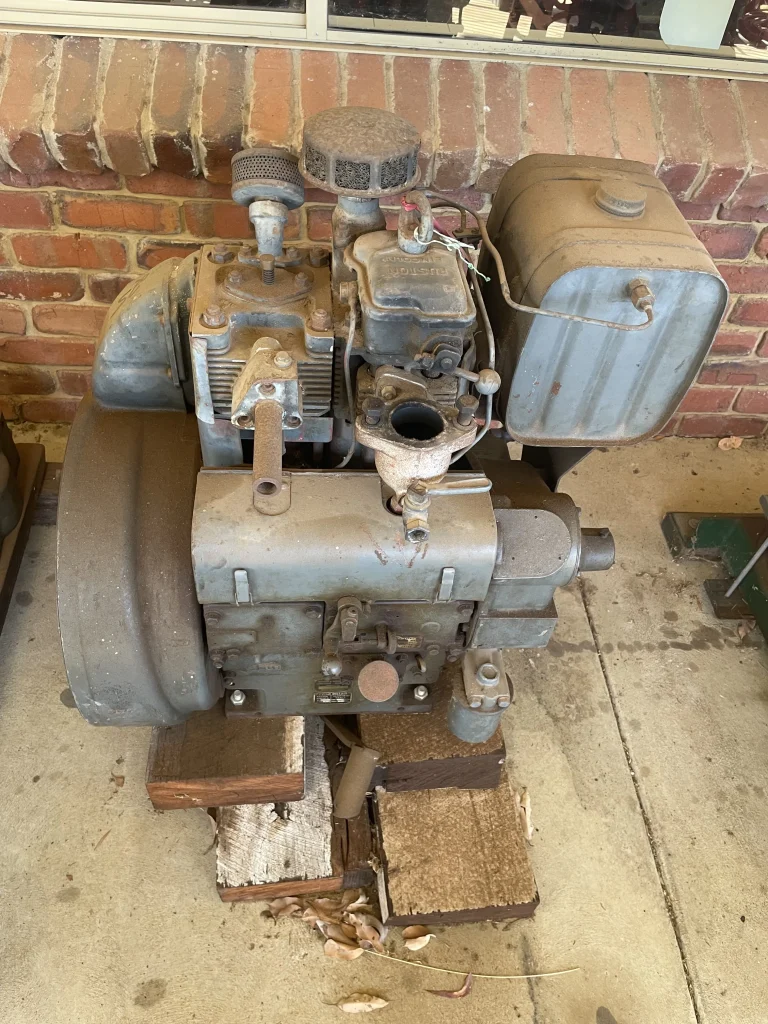
The YWAH engine is a compressor engine, based on the normal 2-cycle, air-cooled diesel 2YWA engine. One cylinder was replaced by an air-cooled single stage compressor. Normally utilised to supply up to 350psi of air to a receiver for starting…
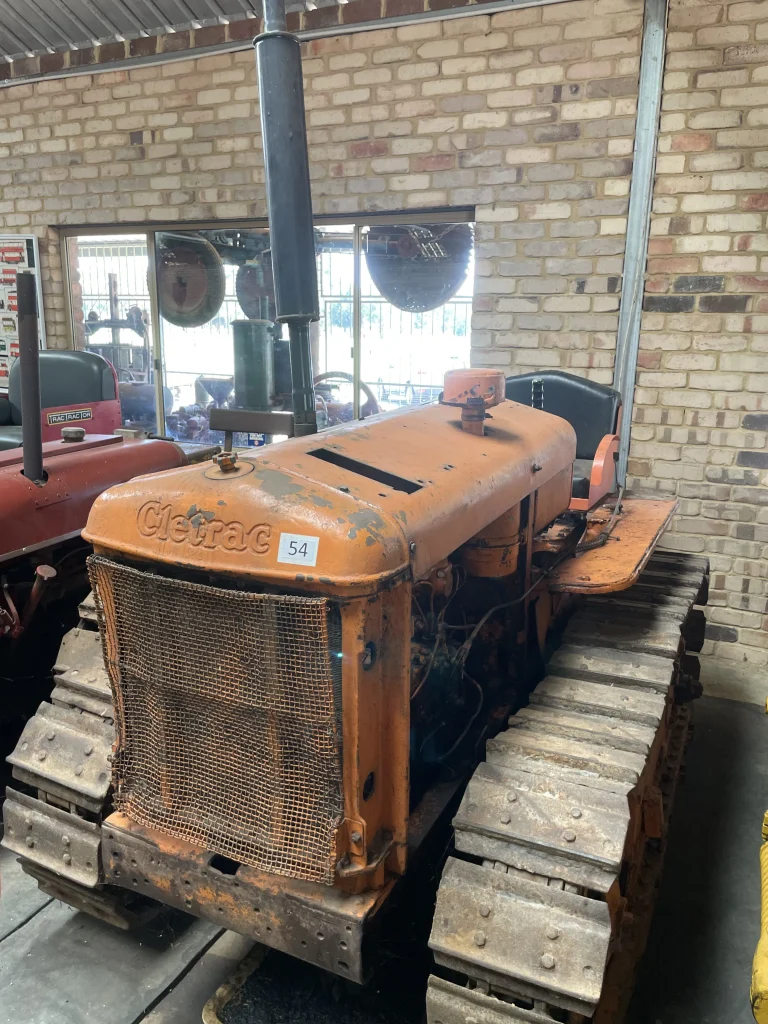
The Cleveland Tractor Company (Cletrac) introduced their model AD crawler in 1937. The model was continued after Oliver Farm Equipment took over Cletrac in 1944 and continued building the model until 1959. Towards the end of the production run the…
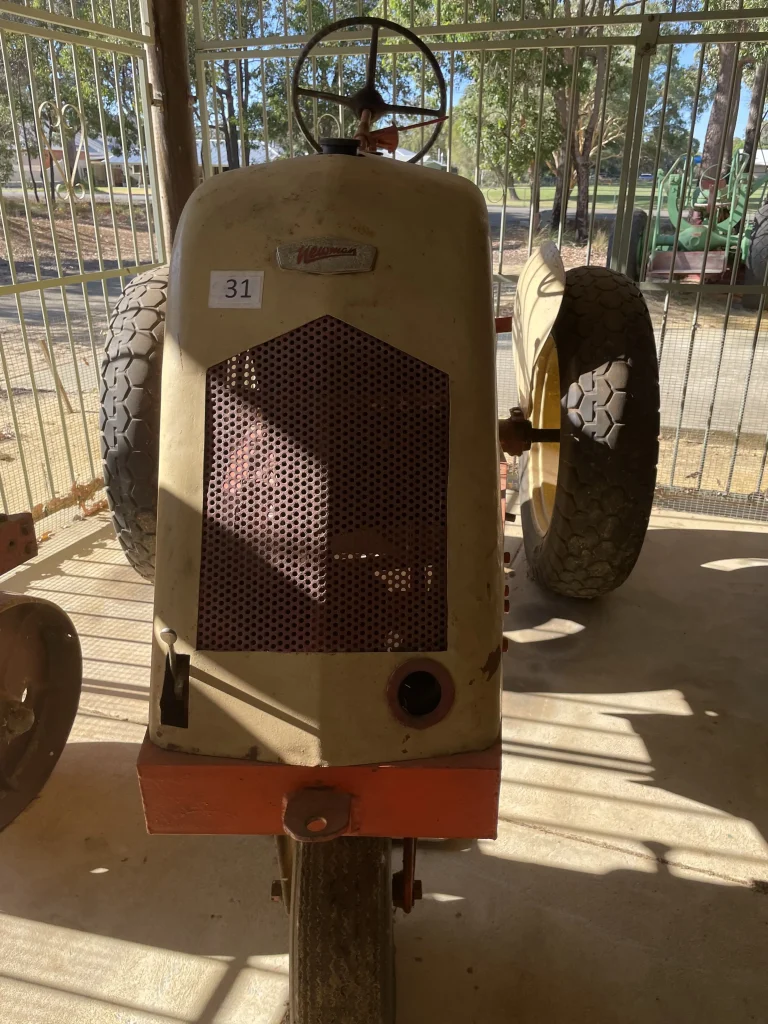
The Newman was an orchard tractor fitted with a single furrow plough. The Newman Garden Tractor is a rare tractor, probably so because few were made in Great Britain by Newman Industries Ltd in Grantham, Lincolnshire, during the short life…

Manufactured by the Minneapolis-Moline Power Implement Co. (M-M) in Minneapolis, Minnesota, USA. The UTS had a long production run in the USA, although comparatively few found their way to Australia. This was the third in a series of M-M models…

The model NA was produced by Ronaldson Bros & Tippett of Ballarat Victoria. It is an air-cooled version of their popular model “N”. With further development, its horsepower was increased into a model NHA 3-4hp, NVA 5½hp, NRA 5-8hp. The…
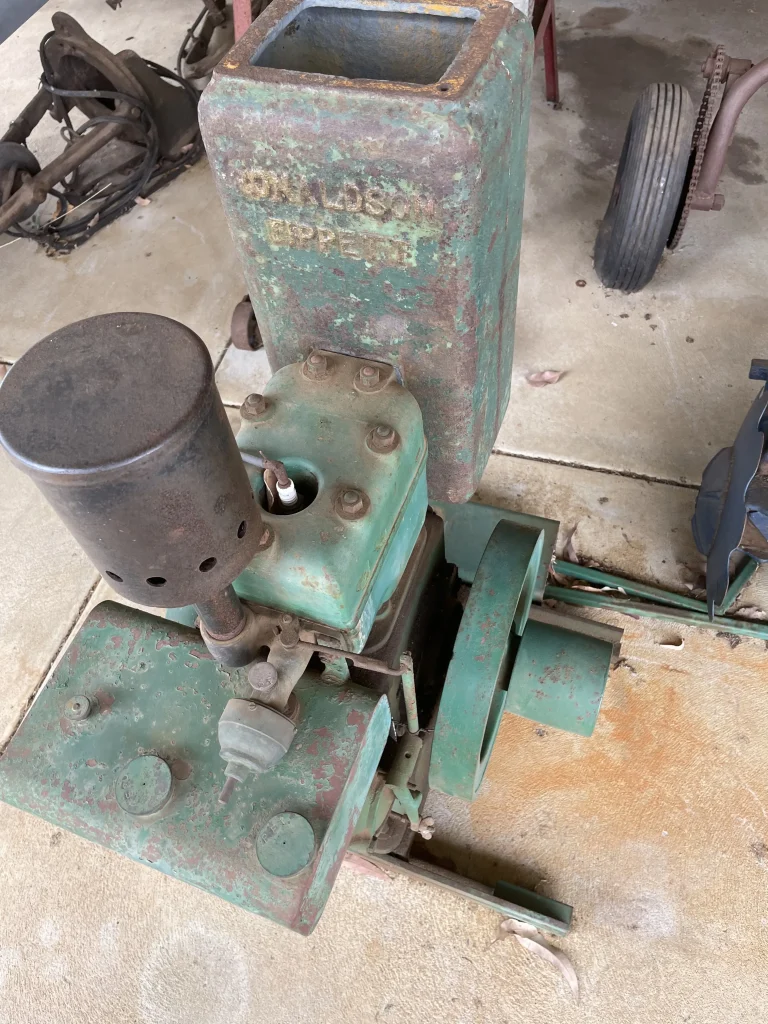
Ronaldson Bros and Tippett was an agriculture manufacturer in Ballarat, Victoria. At its peak, it was the largest engine builder in Australia, bringing out the model N engine in 1927 with a 1¼hp and 2½hp version. These were subsequently developed…

The pump on display was popular in the early 1900s for recovering sunken ships and transferring a ship’s water for ballast. The pump was extremely simple in construction, made of cast iron with no pistons, rods, cylinders, cranks, or flywheels.…

The portable milking machine on display was used on small farms with 1 – 4 cows. It originally had a Villiers petrol engine but has been converted to an electric motor to help show the functions of the parts, that…
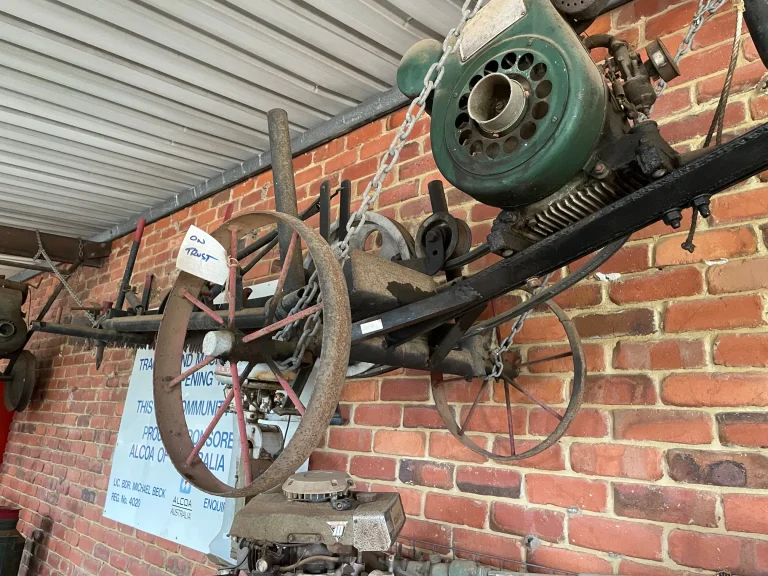
Powered by Villiers mark 25 engine (Made in W.A.)